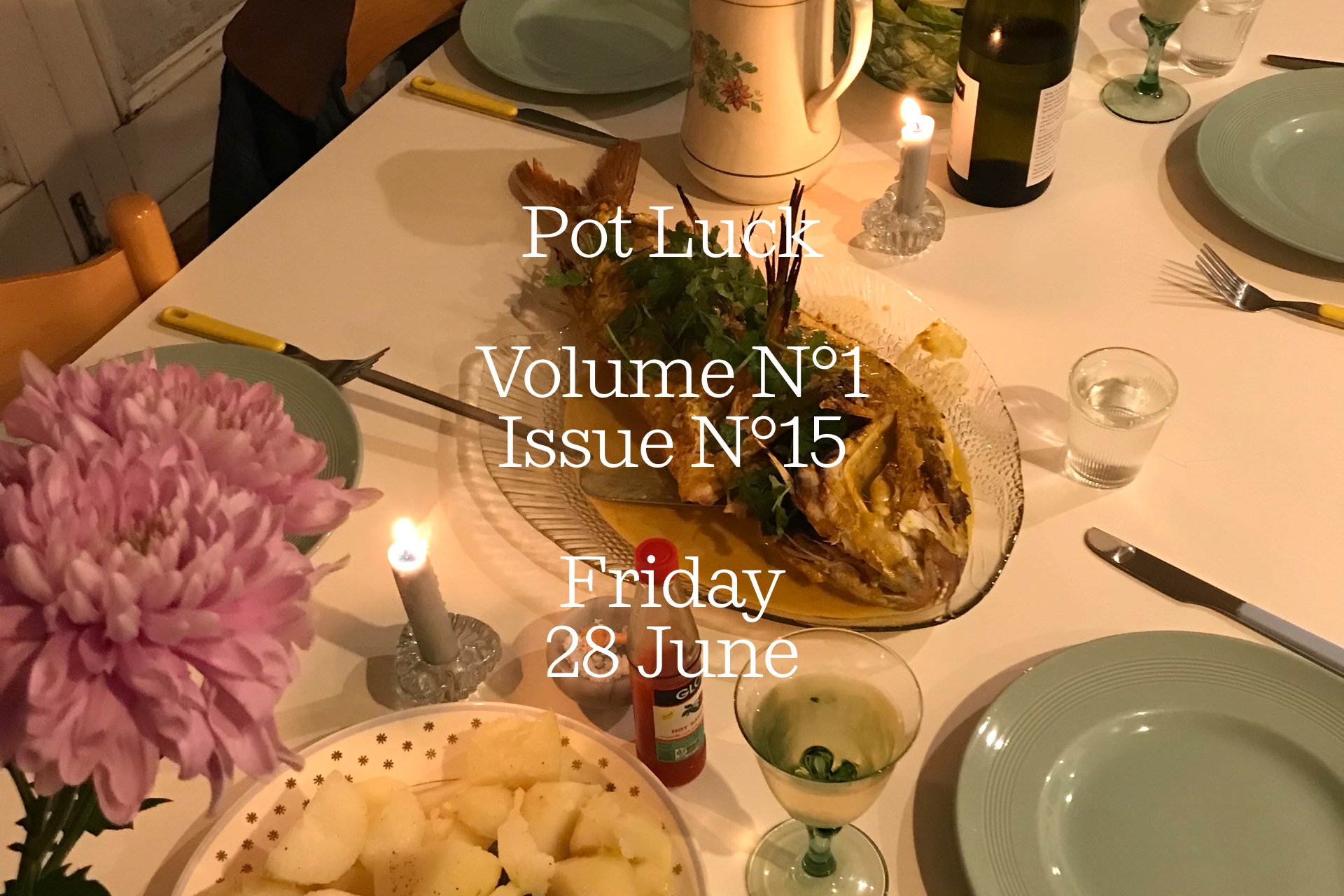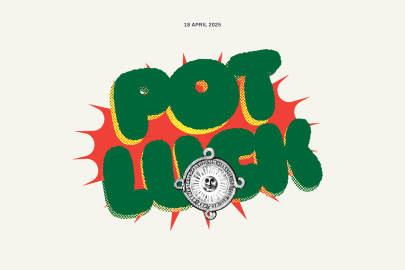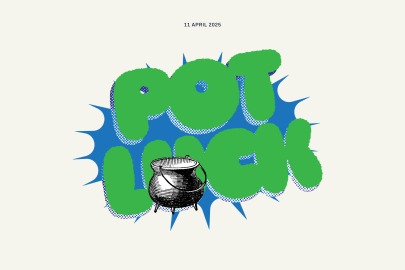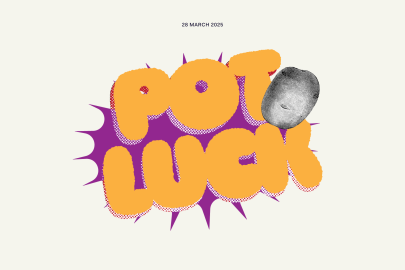Jun 28, 2024 Metro Eats
It’s pretty cool that in our third year of celebrating Matariki as a public holiday in Aotearoa, we’ve gotten to the point where online explainers about the seven or nine whetū in question and manuals on how one should celebrate have become less necessary than they once were. To me, that’s a sign that the celebration has become naturalised, absorbed into our cultural celebratory repertoire. Even those of us who didn’t grow up observing Matariki (myself included) are starting to feel more at ease about what we should be doing to mark it.
Of course, there are explicit links between the ascent of the cluster and kai. As someone who tends to navigate connections through kai, I’m extremely focused on this element. The constellation is a signal to hunt or harvest particular foods, a sign of shifting relationships between the elements and weather, and an indication of what the year will bring. Kai is even more central this time around — the theme for Matariki this year (announced by Chief Advisor Mātauranga Matariki, Professor Rangi Mātāmua) is Matariki Heri Kai, meaning The Feast of Matariki.
In the lead-up to Matariki, I was interviewed about the absence of kai Māori in the Tāmaki Makaurau dining scene. Ever since, I’ve had lingering thoughts about what it means that this scarcity is, for the most part, seen through an entirely pessimistic lens. There’s a tendency — though it’s well meaning — to view the absence of kai Māori in the commercial sphere as a kind of cultural failure. Certainly, there are few restaurants in this city serving kai Māori on their menus, but the answer as to whether that’s a bad thing or not is complex.
Like other strands of our culture, Māori culinary traditions have been devalued in Aotearoa since colonisation. Land alienation, urbanisation and the destruction of ecosystems have made it impractical, and oftentimes impossible, to gather kai using traditional practices. Mātauranga about kai Māori has been fractured by a colonial education system and assimilationist state policies. Moreover, for many Māori, systemic inequality has made it challenging to put any food on the table, traditional or otherwise. The rarity of restaurants serving kai Māori is inarguably a gloomy reflection of this legacy.
At the same time, I can’t help but think that kai Māori might not be as prevalent in restaurants because it thrives so vibrantly within marae and homes, among whānau and hapū. For many Māori, there’s no need to head out to enjoy this kai because it is so deeply embedded in our own spaces. The so-called absence actually reflects something extremely positive.
Of course, it’s exciting to see dishes influenced by kai Māori on menus at places like Ada or the now-closed Homeland , or Matariki offerings at restaurants like Pici and Mister Morris. Ideally, we’d get to a place where our dining scene properly reflects the identity of Aotearoa. But a dining scene that actually reflects that has to remember that kai Māori isn’t simply the sum of a few canonical dishes like boil up or hāngi and indigenous ingredients like kawakawa and horopito — the definition of kai Māori is complex, interconnected and relational.
And while restaurants are an important element of the continuity and expression of kai Māori in Aotearoa, I’m far more interested in resolving those historical and ongoing conditions that have severed our connections to our land and mātauranga — even if it’s a little less convenient than ordering something from a restaurant menu.
Mānawatia a Matariki,
Charlotte
Comings and goings.
I’ve been very curious about the space previously occupied by Mr Spicer on Ponsonby Rd; craning my head every time the bus drives past for signs of what might take over, and trying to peek through the paper-covered front window for clues. This week, signage went up and from what I’ve ascertained from Instagram it’s called Rahi, it will be serving “artisanal Indian and craft cocktails”, and it’s opening soon.
After 20 years, The Wine Cellar (an actual Auckland institution) has announced it will be closing. The final show is scheduled for August, after which Whammy will take over the venue — so you have just over a month for final drinks and goodbyes.
Bon Pinard, the new French wine bar from Jordan and Sarah Macdonald, who also own Duo and Osteria Uno , opens in Birkenhead this weekend.
Tāmaki Makaurau is flush with new noodle places (and new branches of existing noodle spots):
1981 Noodle House (Lanzhou hand-pulled noodles in Newmarket)
A Noodle Story (hand-pulled noodles on Queen St)
Kajiken (Abura soba in Takapuna)
桂粉飘香 GuiRiceNoodle (Guilin rice noodles on Dominion Rd)
Eden Noodles (Sichuan noodles in Manukau City)
The city’s oldest pub, The Queens Ferry, which has been around since 1865 on Vulcan Lane, has just reopened with a refreshed menu (think less old English, more gastro pub fare) and rejuvenated decor. From the looks of it, the rejuvenation is a shift from their previous vibrant, jewel-like painted walls, detailing and cosiness to a far more minimalist, airy look. There’s something to be said about the movement in the pub world from colourful to greige (see: Gailbraith’s latest paint job) — personally, I resent the trend, but I suppose I’m not the target market.
Khu Khu Eatery ’s anticipated Snickel Lane branch is officially open.
Also in the city centre: cruffin purveyor Luna Bakehouse has just opened a new branch on Hobson St.
Two Guys Chicken Burger had their grand opening last weekend in Royal Oak with an insanely cheap special offer for $5 burgers — unsurprisingly, it sounds like they sold out extremely quickly. I kind of love that they’re in the food court of the Royal Oak Shopping Mall. (I love weird, eerily quiet shopping centres, and this is one of the best in the genre.)
Another fried chicken spot Chickmate (which was mentioned in this newsletter a few months ago as a yet-to-open spot) has now opened its doors on 2 Hutchinson Ave, New Lynn. They specialise in fried chicken, as is, but also enveloped in wraps or between burger buns. They’re open quite late, too — till 11pm most nights, and on Fridays and Saturdays till midnight. While I love fried chicken as much as the next person, I have to say, at what point do we say the market has more than reached saturation?
Culprit’s Kyle Street has taken over the reins at Ellerslie restaurant Bonita. From the sounds of it, the menu will be less Korean-Spanish fusion (the original concept for the restaurant) and more Spanish-Spanish.
Lastly, we bid adieu to an Auckland icon: the elephant (once gold, now red) from Auckland’s Red Elephant restaurant has been retired to Northland.
Where we’re going.
This weekend, there are a bunch of Matariki events taking place around Tāmaki Makaurau. I’m especially keen on the full-day Matariki festival (on today) from midday at the Botanic Gardens with performance, music and kai stalls, as well as two installations (Taurima and Mātahi) in the city centre which each honour the histories of the areas they’re situated in and visits to which would make for a lovely evening activity.
Next week marks the beginning of Eat It, which will see restaurateurs along Karangahape Rd honouring the road’s history as a red-light district through food and drink. Opening night is on Thursday 4 July and will see Caluzzi Cabaret serving a special ‘Show Us Your Melons’ cocktail. Peep here for the schedule of 20 events over the course of the month.
Also a quick shout for this raffle (prizes include Curio Noir perfume!) organised by Damaris Coulter (The Realness) to raise funds to help a family evacuate Gaza. See here for details and how to enter.
What we’re sipping.
(A new semi-regular drinks dispatch by Metro’s editor Henry)
Last week, I had the rare privilege of being invited to Somm Cellars to experience a “masterclass” tasting of all six vintages of Martinborough Vineyard’s Marie Zelie pinot noir to celebrate the release of the 2019.
Some background: Marie Zelie is the name given to the absolute best pinot noir Martinborough Vineyard can make — not the best it can make in any given vintage, but the best it can make in exceptional vintages. We tasted the newly released 2019, followed by 2013, 2010, 2008, 2006, and the very first release, the 2003, a wine so rare after opening the bottle, the winery was left with only 11 bottles in its library.
So what did it taste like? It was everything one would want out of such a special wine — tannic, and structured, with its fruit characteristics coming more in the form of dried berries saved for winter rather than the fleshy ripeness of summer. It was amazing to taste the similarities and differences through the vintages, all detailed by winemaker Paul Mason. My favourite was the 2010, a vintage plagued by frosts and near-catastrophe only to be saved by some miracle sun, ending up with grapes that survived the worst to come out the best — world-weary and battle-hardened but still generous and optimistic.
Now, it’s always a little uncomfortable to write about something so expensive (the new release is now available at $220 a bottle), especially in these recessionary times. But in the week since, I’ve thought about it like this. Is $220 a lot for a single bottle of wine? Yes! It’s way out of my budget! But, if I had the option of spending $260 on a concert at Eden Park, a burger and a couple of beers; or this $220 bottle of wine and a nice home-cooked meal with friends, I’m picking the latter nearly every time.
— Henry






